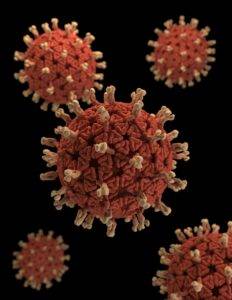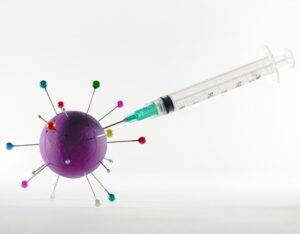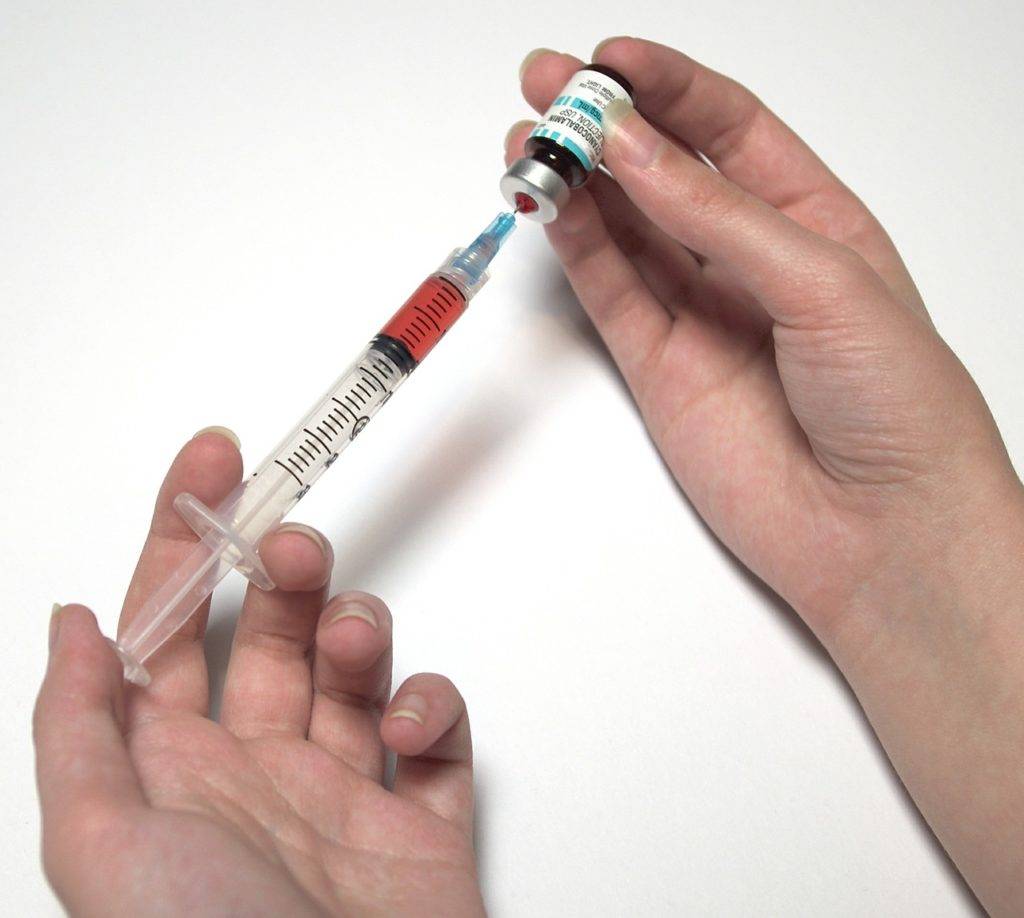The chickenpox vaccine, also known as the varicella vaccine, is a critical immunization that helps prevent chickenpox, a highly contagious disease caused by the varicella-zoster virus. Chickenpox typically causes an itchy rash with small, fluid-filled blisters, fatigue, and fever.
While often mild in children, chickenpox can be severe in adults and those with weakened immune systems.
Importance of Vaccination
Vaccination is a powerful tool in controlling infectious diseases. It protects the vaccinated individual and contributes to community immunity, or herd immunity, which protects those who cannot be vaccinated.
The chickenpox vaccine is a key part of the routine immunization schedule recommended by health authorities like the Centers for Disease Control and Prevention (CDC).
Can the Chickenpox Vaccine Be Given Along With Other Vaccines?
Understanding Combination Vaccines
Combination vaccines are those that protect against multiple diseases with a single injection. These are developed to reduce the number of shots given and to ensure children and adults receive timely vaccinations. A well-known example is the MMR vaccine, which protects immunity against measles, mumps, and rubella in one shot.
Common Vaccines Administered With the Chickenpox Vaccine
The chickenpox vaccine can be given alongside several other vaccines without compromising safety or efficacy. Some commonly co-administered vaccines include:
- MMR (Measles, Mumps, Rubella) Vaccine: Often combined with the chickenpox vaccine to form the MMRV vaccine.
- DTaP (Diphtheria, Tetanus, Pertussis) Vaccine: Sometimes given during the same visit but in separate injections.
- Hepatitis A and B Vaccines: Administered separately but can be given in the same visit.
- Influenza Vaccine: Typically given annually and can be administered simultaneously with the varicella vaccine.
Safety and Efficacy of Concurrent Vaccination
The safety and efficacy of administering the chickenpox vaccine alongside other vaccines have been extensively studied. Research shows that receiving multiple vaccines simultaneously doesn’t increase the risk of adverse side effects.
It’s more convenient and ensures that vaccination schedules are followed accurately, protecting against multiple diseases simultaneously.
Recommendations from Health Authorities
Health organizations such as the CDC and the World Health Organization (WHO) endorse the concurrent administration of the chickenpox vaccine with other vaccines. These recommendations are based on extensive research demonstrating the safety and effectiveness of combination and concurrent vaccinations.
Benefits of Giving Multiple Vaccines at Once
1. Improved Compliance
Administering multiple vaccines in one visit improves compliance with vaccination schedules. This is particularly important in busy healthcare settings and for parents managing the immunization needs of many children. Improved compliance helps ensure that children are protected from preventable diseases on schedule.
2. Reduced Healthcare Visits
Fewer healthcare visits mean less time traveling to and from appointments, which benefits families with limited access to healthcare facilities. It also reduces the burden on healthcare systems, allowing providers to allocate resources more efficiently and focus on other critical aspects of patient care.
3. Enhanced Immunity
Receiving multiple vaccines simultaneously ensures that children and adults are protected against several diseases as early as possible. This is crucial for maintaining herd immunity and preventing outbreaks of vaccine-preventable diseases.
The timely administration of vaccines helps to safeguard public health and prevent the spread of infections.
Addressing Common Concerns
Will Multiple Vaccines Overwhelm the Immune System?
One common concern among parents is that receiving multiple vaccines at once might overwhelm their child’s immune system. However, scientific evidence shows that the immune system is more than capable of handling vaccines simultaneously.
The immune system encounters thousands of antigens daily through regular activities, far more than it does through vaccinations.
Are There Increased Side Effects?
Another concern is the likelihood of increased side effects when vaccines are administered together. Studies have consistently shown that the side effects of combination vaccines are similar to those observed when the vaccines are given separately. Most side effects are mild, such as redness or swelling at the injection site, and are short-lived.
How Are Vaccines Tested for Concurrent Use?
Vaccines undergo rigorous testing for safety and efficacy, including studies on concurrent administration with other vaccines. Regulatory agencies require comprehensive data from clinical trials before approving vaccines for use. This thorough testing ensures that any combination of vaccines given concurrently is safe and effective.
Practical Considerations for Parents and Caregivers
Scheduling Vaccinations
Parents and caregivers work closely with their healthcare providers to schedule vaccinations according to recommended timelines. Pediatricians and family doctors guide the best times to administer the chickenpox vaccine with other vaccines. Adhering to the recommended schedule ensures that children receive the full benefits of immunization.
Monitoring After Vaccination
Monitor for any side effects after vaccination, whether the vaccines are given separately or together. Common side effects include mild fever, soreness at the injection site, and fatigue. Severe reactions are rare but should be reported to a healthcare provider immediately.
Monitoring your child after vaccination ensures any issues are promptly addressed.
Keeping Accurate Records
Maintaining accurate immunization records ensures that all recommended vaccines are received on schedule. Records are crucial to know when booster shots or additional doses are needed. Immunization records also provide valuable information for healthcare providers when making future healthcare decisions for your child.
The Science Behind Concurrent Vaccinations
How Vaccines Work: Vaccines stimulate the immune system to recognize and fight specific pathogens. They contain antigens, parts of the virus, or bacteria that cause disease. The body produces antibodies against these antigens, building immunity without causing the illness.
Immune System Capacity: The human immune system is incredibly robust and capable of responding to multiple antigens simultaneously. Daily exposure to various pathogens means the immune system is constantly at work. Vaccination leverages this natural capacity to protect against serious diseases efficiently.
Clinical Studies and Findings: Numerous clinical studies have examined the safety and efficacy of administering multiple vaccines simultaneously. For instance, studies on the MMRV vaccine, which combines the MMR and varicella vaccines, have shown it to be safe and effective, with side effects similar to those of the individual vaccines.
Recommendations and Guidelines: Health authorities, including the CDC and WHO, provide detailed guidelines on vaccine administration, emphasizing the safety of concurrent vaccinations. These guidelines are based on extensive research and are regularly updated to reflect the latest scientific findings.
Personal Stories and Testimonials
Real-life Experiences: Hearing from parents and caregivers who have navigated the vaccination process is reassuring. Many parents report positive experiences with concurrent vaccinations, noting the convenience and peace of mind ensuring their children are fully protected.
Pediatricians’ Insights: Pediatricians share their professional experiences and observations. They see firsthand the benefits of adhering to vaccination schedules and the positive outcomes of preventing multiple diseases with timely immunizations.
The Role of Pediatricians in Vaccination
1. Guidance and Support Through the Immunization Process
Pediatricians play a crucial role in guiding parents through the vaccination process. They provide essential information about the benefits and safety of vaccines, address any concerns, and ensure that vaccination schedules are followed. This guidance helps parents make informed decisions about their child’s health.
2. Monitoring for Side Effects and Follow-up
After administering vaccines, pediatricians monitor children for side effects and provide follow-up care as needed. They’re trained to recognize and manage adverse reactions, ensuring that issues are promptly addressed. This monitoring helps maintain the safety and efficacy of the vaccination process
Pediatricians also maintain vaccination records to track immunization status and remind parents of upcoming vaccines.
3. Educating About Vaccine-Preventable Diseases
Pediatricians educate parents and caregivers about the diseases that vaccines prevent. Understanding the severity and potential complications of diseases underscores the importance of vaccination. This education helps build trust in the vaccination and encourages adherence to recommended schedules.
4. Advocacy for Immunization
Pediatricians advocate for immunization as a key component of preventive healthcare. They work to educate parents and communities about the importance of vaccines in preventing serious diseases.
The Future of Vaccination
Advances in Vaccine Technology: The field of vaccine technology is continually evolving. New vaccines are being developed to protect against a broader range of diseases. Advances in biotechnology are also leading to the creation of more effective and longer-lasting vaccines. These innovations promise to enhance global health outcomes.
Personalized Vaccination Schedules: Research explores the possibility of customized vaccination schedules tailored to an individual’s unique health needs. Such approaches could optimize the timing and combination of vaccines for maximum effectiveness. Personalized schedules may become a reality, further improving vaccination strategies.
Global Vaccination Initiatives: Programs are initiated to increase vaccine accessibility in underserved regions. These efforts are crucial for eradicating diseases and improving health outcomes worldwide. Organizations like WHO and UNICEF are leading these initiatives, working towards a future where vaccine-preventable diseases are a thing of the past.
FAQs About the Chickenpox Vaccine
Can the Chickenpox Vaccine Be Given With the Flu Vaccine?
Yes, the chickenpox vaccine can be given with the flu vaccine. Administering these vaccines simultaneously is safe and ensures timely protection against both diseases.
What Are the Side Effects of the Chickenpox Vaccine?
Common side effects include mild fever, soreness at the injection site, and a mild rash. Serious side effects are rare but should be reported to a healthcare provider.
How Effective is the Chickenpox Vaccine?
The chickenpox vaccine is highly effective. Two doses of the vaccine are about 90% effective at preventing chickenpox. Even if vaccinated individuals do contract the disease, it is usually milder with fewer complications.
Why is the Chickenpox Vaccine Important?
The chickenpox vaccine prevents a highly contagious disease that leads to serious complications, especially in adults and those with weakened immune systems. Vaccination also contributes to herd immunity, protecting those who cannot be vaccinated.
Can the chickenpox vaccine be given with the MMR vaccine?
Yes, the chickenpox vaccine can be given with the MMR vaccine. A combination vaccine called MMRV protects against measles, mumps, rubella, and varicella (chickenpox).
Are there any special preparations needed before receiving multiple vaccines at once?
No special preparations are typically needed before receiving multiple vaccines. However, it is always a good idea to consult with your healthcare provider about any specific concerns or conditions that might affect vaccination.
What should I do if my child has a reaction to a vaccine?
Most vaccine reactions are mild symptoms like fever, soreness at the injection site, and fatigue. Contact your healthcare provider immediately if you notice severe reactions, such as difficulty breathing, high fever, or extensive swelling.
How do I know if my child is up to date with vaccinations?
Your healthcare provider provides an immunization schedule and helps you track which vaccines your child has received and which are still needed. Keeping an immunization record card helps stay organized.
Is it safe to delay some vaccines if I’m concerned about giving too many at once?
Delaying vaccines leaves your child vulnerable to infectious diseases. It’s recommended to follow the immunization schedule by health authorities to ensure timely protection against multiple diseases.
Where can I find more information on vaccines?
Reliable sources for vaccine information include the CDC, WHO, and healthcare providers. For detailed articles on various pediatric health topics, you can visit Omega Pediatrics.
Get Your Child’s Chickenpox Vaccine Alongside Other Vaccines
The chickenpox vaccine can safely be given alongside other vaccines. Doing so provides numerous benefits, including improved compliance with vaccination schedules, reduced healthcare visits, and enhanced immunity against multiple diseases.
Health authorities endorse the concurrent administration of vaccines based on robust scientific evidence. Parents and caregivers should feel confident following recommended immunization schedules to protect their children and communities from vaccine-preventable diseases.
6 Reasons Why Early Visits to the Pediatrician Are ImportantWe protect ourselves and our loved ones from preventable illnesses by staying informed and proactive about vaccinations. For more information on vaccines and immunization schedules, visit Omega Pediatrics.







